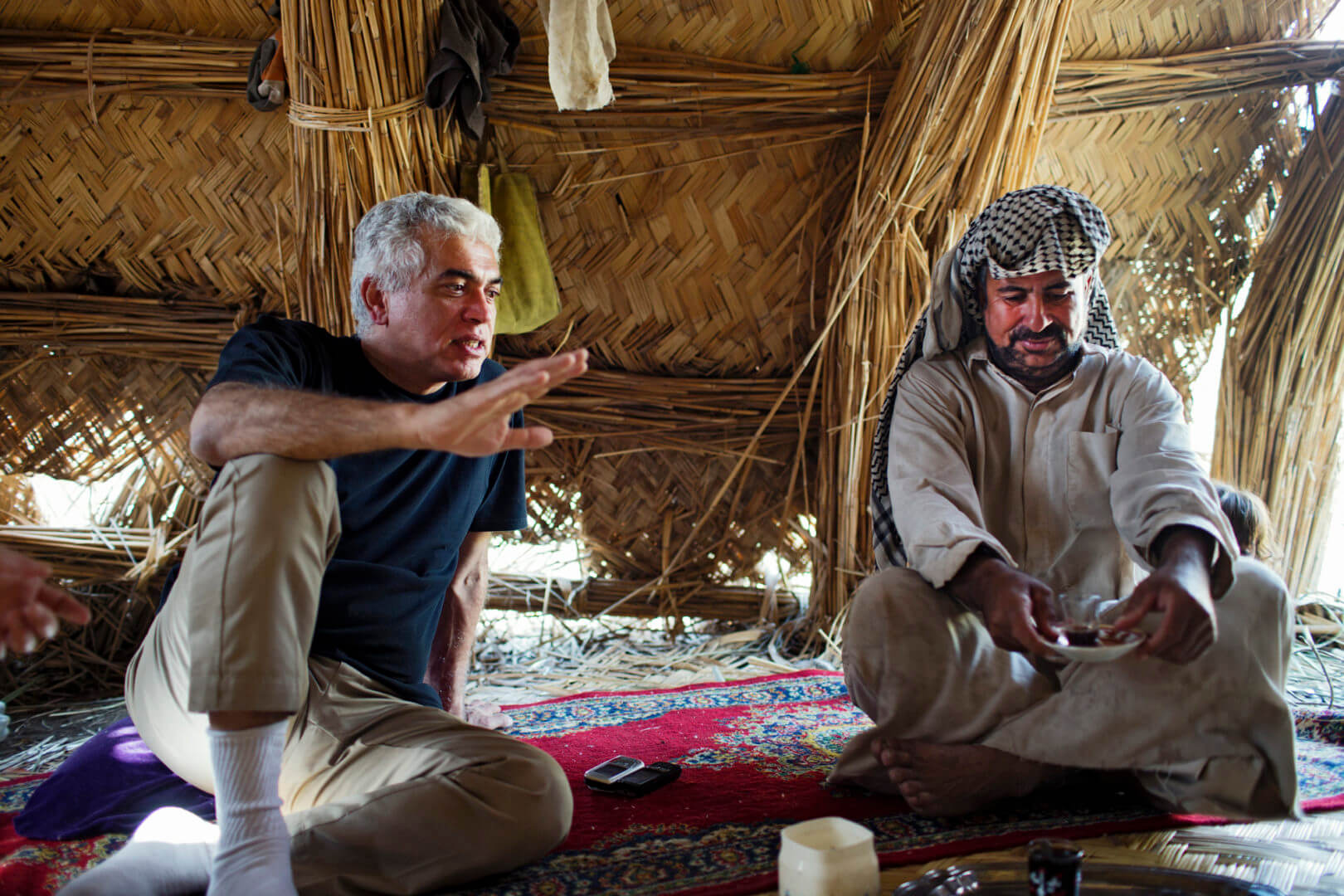Saving The Garden Of Eden
Chibaish, Iraq—“How do you describe destruction? Where life was, where reeds were, where birds roamed, where fishing took place, where life was happening, now you had nothing but sand and clay and tumbleweed.”
When Azzam Alwash, Ph.D. ’89, returned to his native Iraq in June 2003, he found disfigured murals of Saddam Hussein and thousands of American troops in Baghdad. But he was horrified when he reached Iraq’s southeastern wetlands, where he grew up. In the preceding decade, Iraqi regime had systematically drained more than 90 percent of the region, home to the world’s oldest civilizations and nearly half a million people.
Since then, Alwash, 55, has been working to restore his homeland and resuscitate the mythical Garden of Eden.
USC Viterbi’s 2014 Junior Alumni Award winner, Alwash was born in the area nestled between the Tigris and Euphrates rivers. Anthropologists believe the kingdoms of Babylon, Assyria and Sumeria rose and fell between these rivers. The Biblical Garden of Eden was might well have been there. Agriculture, banking and writing were born there. For millennia, these wetlands supported rice, wheat, barley, fish and buffalo. People here lived in houses built from reeds, accessible only by boats. They sold reed mats and baskets and harvested most of their own food.
“Mankind did not settle there coincidentally, like, oh, this looks like a nice place. It’s a place where they actually can make a living easily enough without having to go follow the food. The food was there,” Alwash said. “And it’s gone.”
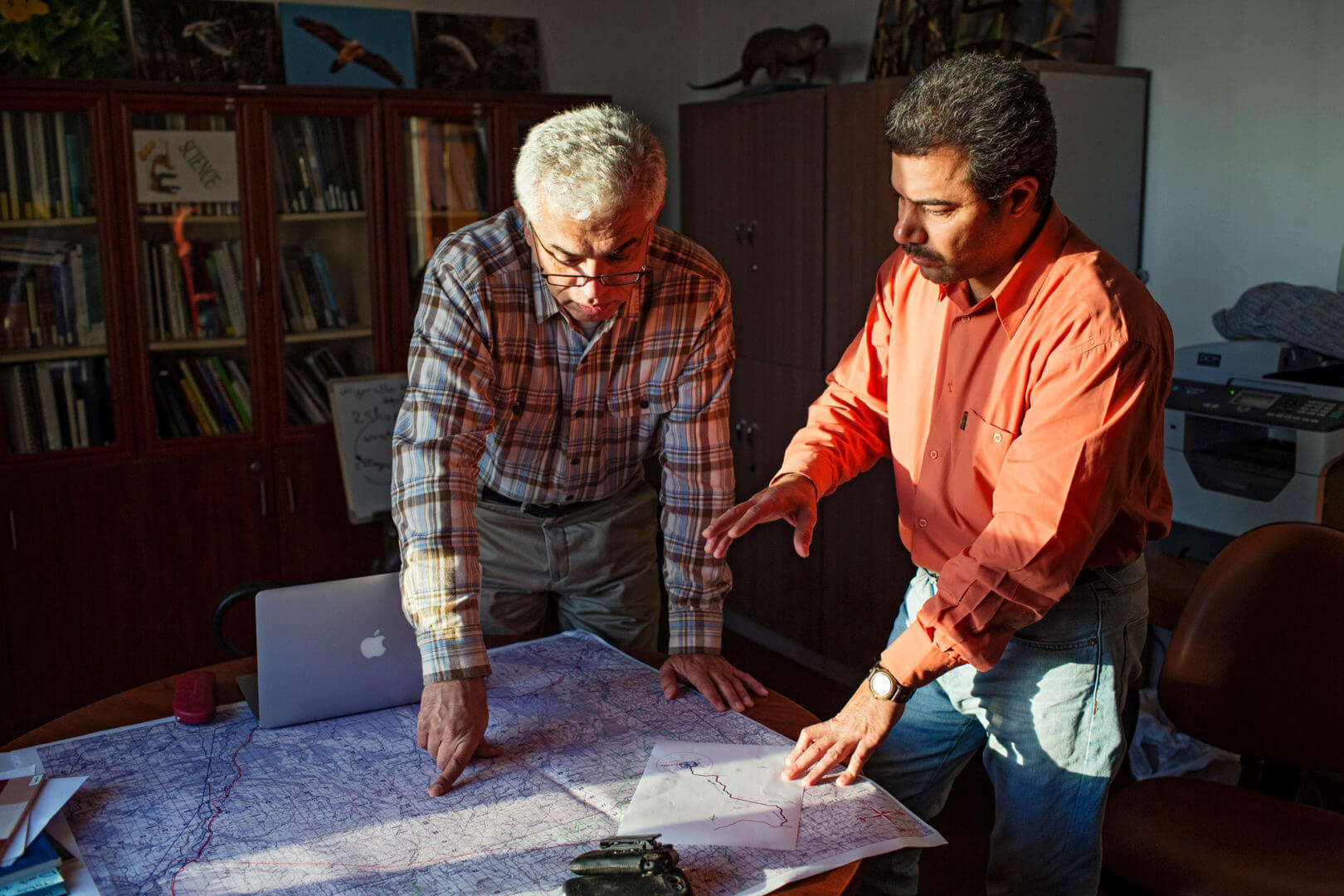
GRADUAL DESTRUCTION
Searching for oil, Iraq’s government engineers began draining the marshes in the 1950s. This process intensified after the failed Iraqi uprisings of 1991, when the Shi’a Marsh Arabs were targeted for punitive action. In response, the regime built embankments and excavated canals redirecting the rivers around the marshes.
Governments worldwide have drained wetlands in the past century to deprive mosquitoes of their natural habitat or access minerals underneath. Few have sought to destroy a population. Yet before Saddam fell, more than 90 percent of Iraq’s southeastern wetlands became barren. Nine species of birds became endangered, and the region’s average temperature increased by 5 degrees Celsius. And only a few thousand people remained on the land their ancestors had cultivated for millennia. The rest moved to cities or took refuge in Iran and elsewhere, including Southern California.
“In 1991, half a million people earned their living through activities connected to the marshes,” Alwash said. “They didn’t want the marshes restored because they’re ‘tree huggers’—they wanted a way of making a living. They wanted to recover their way of life.”
Alwash, a 2013 Goldman Environmental Prize winner, wouldn’t call himself a “tree hugger” either. In 1978, he was ordered to join the pro-Hussein Students Union or become ineligible for postgraduate work. He moved to the United States and enrolled at California State University, Fullerton, instead. He completed his Ph.D. in civil engineering at USC Viterbi in 1989.
Next came a lucrative job at an Orange County consulting firm. Alwash and his wife loved to kayak, and he promised to take her and their daughters to his homeland someday.
“I was a kayaker, and so I became involved with water issues and the Clean Water Act,” Alwash said. “Then I began hearing news of the drying of the marshes, which is where I grew up, and that was the beginning of my environmental awareness—of trying to put the spotlight on the importance of the environment, not only for birds and fish and plants, but really as an economic source for people who live in the marshes.”
Many Marsh Arabs are livestock farmers, so without water buffalo and sheep they cannot work. Some herd, hunt, fish and produce handicrafts. But nearly all their resources depend on healthy wetlands.
NASA revealed satellite images of the decimated region in 2001. Shocked, Alwash and his wife reached out to ecologists, hydrologists and botanists worldwide to find a way to restore the wetlands. They called the project Eden Again.
“I tried to put the spotlight on using water as a weapon of mass destruction,” Alwash explained.
In June 2003, Alwash went on a two-week U.S. State Department exploratory visit to Iraq. That trip turned into his lifelong commitment. Today, thanks to his engineering expertise, local alliances and Baghdad lobbying visits, at least 75 percent of the marshlands are returning to health.
“The guy just became a war horse,” said Richard Miller, Alwash’s Ph.D. advisor and now president at Olin College of Engineering. “He was getting on planes, going everywhere and raising money.”
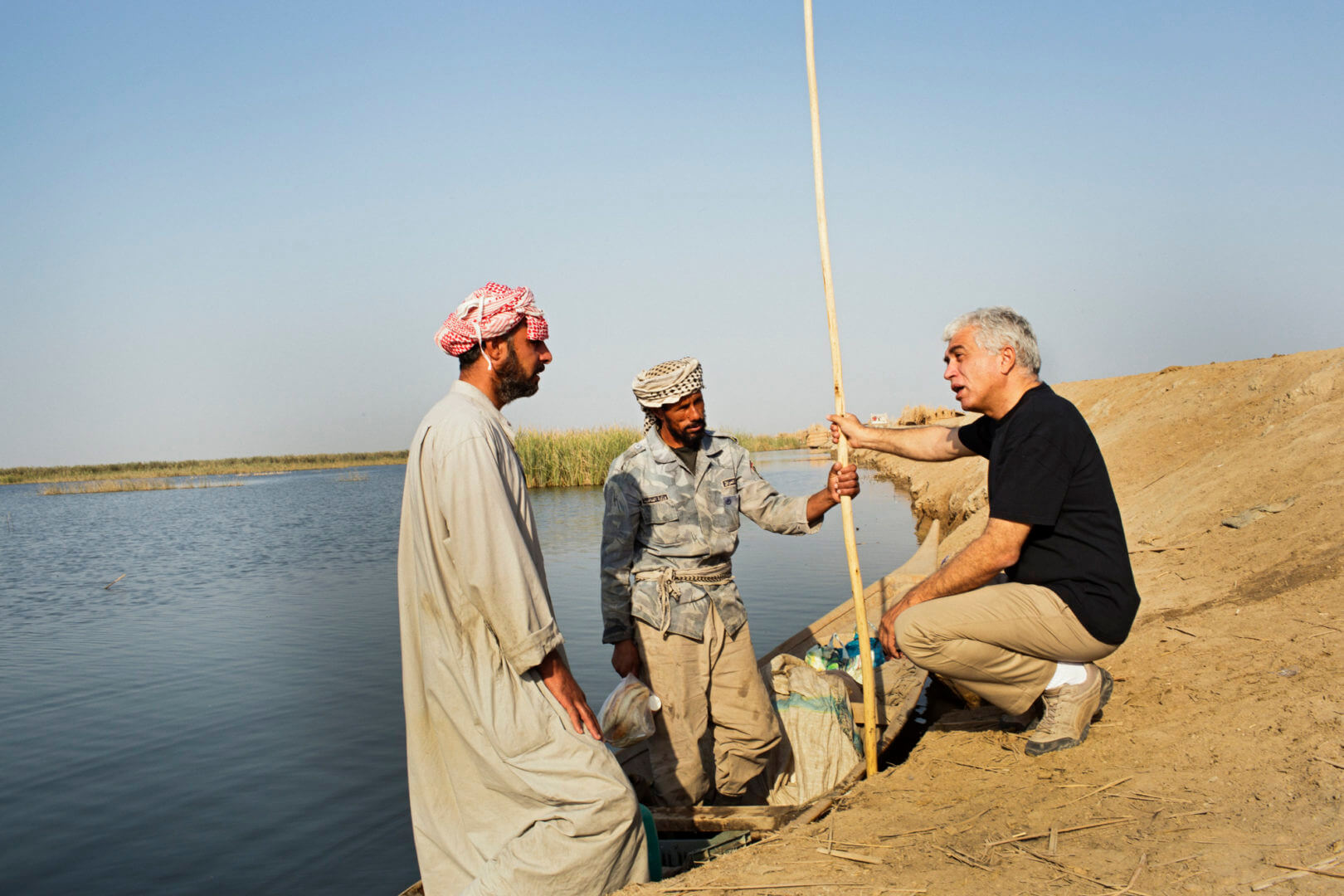
RESTORATION
For a decade, Alwash has advised the Marsh Arabs, or Ma’dan, on the mechanics of restoration.
“From day one working in Iraq, I was in love. First of all, there are no planning commissions to go to. There’s engineering in the old-fashioned way, trial and error. Instead of studying it for 10 years, let’s do it and see what happens,” Alwash said. “Here I was, doing engineering with a calculator on the back of an envelope, and it was fun. It was why I did engineering in the first place. I loved it.”
The marsh residents had already begun knocking down the government-built dams, and Alwash picked strategic spots to destroy or build levees to make sure the rivers flowed continuously. Within six months, reeds began to grow and fish returned, followed by birds. After 10 years and $150 million, mostly from donations, the marshes have largely come back from the brink.
“While the groundwork was done by Marsh Arabs themselves, my contribution was to use my technical skills to help them make the breaks at the proper places where they can get the biggest bang for the cubic meter of water, so to speak,” Alwash said.
But this flowering, flowing project has had to employ armed guards too. In 2005, a local gang kidnapped five members of Alwash’s team for ransom. The victims’ families paid, but Alwash refused to negotiate, lest the rest of his team be targeted. Now they bring sentries on every visit.
“You have to be careful and savvy, but all Iraqis have the same chances,” Alwash said. “I can’t wait for the end of the war. Of course it hinders our work, but it has not stopped us.”
Alwash also served as a political liaison for a historically underrepresented group. The Ma’dan were long considered Iraq’s “hillbillies”—poor, old-fashioned and unhealthy. Many in the marshes suffer from jaundice, digestive problems and mosquito-borne diseases. Literacy rates are very low.
“Being trained in Western democracy, I was able to help Iraq’s newly freed people use the newly acquired tools of democracy to lobby for their point of view,” Alwash said.
Some Marsh Arab advocates opposed Alwash’s work, saying that moving away from the marshes would empower the Ma’dan instead of encouraging outdated techniques to persist.
“I make it sound romantic, living amongst nature, building your houses out of reeds. Try it—it’s not fun,” Alwash said. The region still lacks access to electricity, and the marsh waters have become brackish and can no longer support rice. Though several thousand Marsh Arabs have returned, Alwash does not expect them to stay for more than a generation.
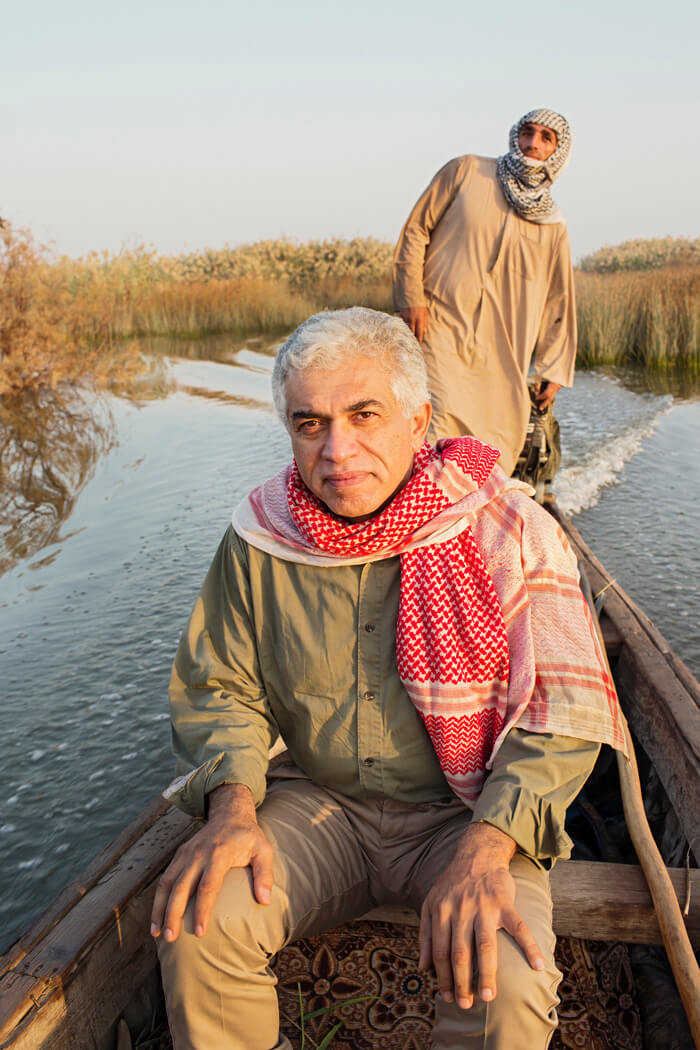
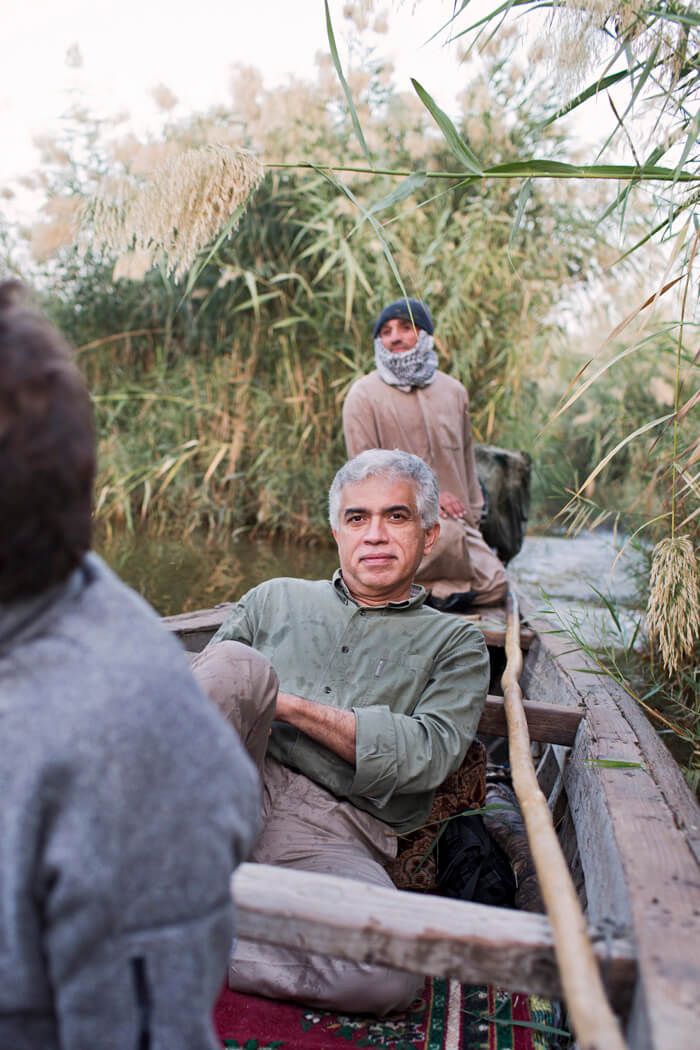
“THE ENVIRONMENT DOES NOT RECOGNIZE POLITICAL BORDERS”
Alwash, too, has left the marshes. He spends most of his time now in Baghdad, lobbying for Iraq’s nascent environmental movement. Eden Again has evolved into Nature Iraq, the nation’s first environmental NGO, which seeks to protect biodiversity nationwide. Last year the Central Marshes became Iraq’s first national park, and the group is building 10 more parks.
But Alwash has already expanded his focus.
“Over the past 10 years of working on the environment, I am painfully aware that the environment does not recognize political borders,” Alwash said. “What happens in Turkey affects what happens in the northern Gulf. What happens in the Gulf affects what happens in the Arabian Sea. You have to work at a bigger map, at a bigger and bigger level.”
Dams upstream in Turkey and Syria limit the extent of the marsh restoration because they prevent annual floods, which naturally fertilized nearby soil until the first dams appeared in the 1960s.
“All the issues cannot all be dumped on the previous government. This is a global issue of water distribution,” said Sami Masri, a USC Viterbi professor of civil and environmental engineering who worked with Alwash on his Ph.D. research and considers him a close friend.
“Still, some of the damage is irreversible,”
Masri said.
Alwash’s next “self-assigned mission” transcends these borders. He hopes to use his growing political influence to begin to arrange water treaties between Iraq, Turkey, Iran and Syria.
For anyone else, this might seem daunting. But Alwash’s peers also said the marshes couldn’t be restored. He’s comfortable facing the impossible.
“Besides the marshes, besides the environment, I started a university [the American University of Iraq]. I worked in politics. Every now and then, I make an economic deal. It’s addictive,” Alwash said. “I’m getting four once-in-a-lifetime opportunities in one lifetime. How lucky is that?”
